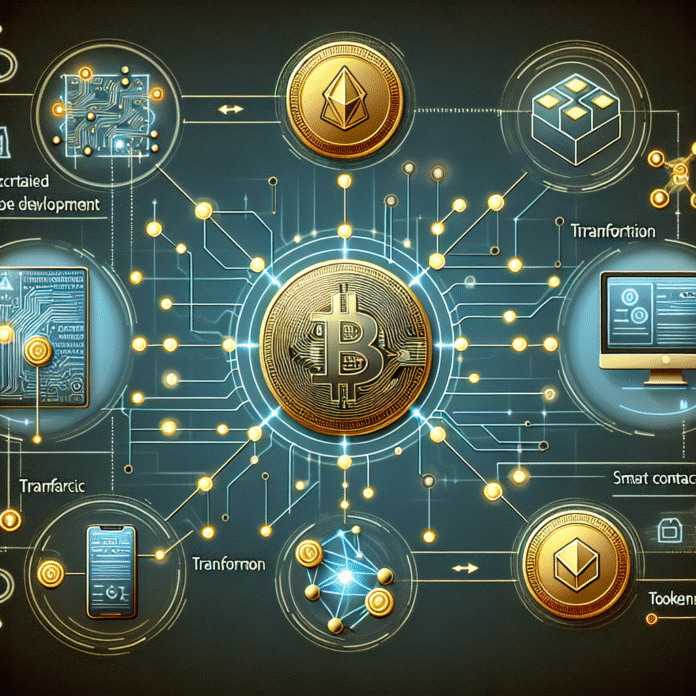Exploring the Impact of DeFi Smart Contracts on Tokenization
Programming Insider
The Evolution of DeFi Smart Contract Development and Its Impact on Tokenization
In recent years, decentralized finance (DeFi) has emerged as a revolutionary force within the financial industry, reshaping the way individuals and institutions interact with financial services. At the heart of this transformation lies smart contract development, which plays a crucial role in the tokenization of assets. This article delves into the intricacies of DeFi smart contracts, their functionality, and their significant contributions to the tokenization landscape.
Understanding Smart Contracts in DeFi
Smart contracts are self-executing contracts with the terms of the agreement directly written into code. Operating on blockchain technology, these contracts automatically enforce and execute actions when predefined conditions are met. In the context of DeFi, smart contracts facilitate various financial transactions without the need for intermediaries, thereby increasing efficiency and reducing costs.
One of the primary advantages of smart contracts is their transparency and security. Since all transactions are recorded on the blockchain, they are immutable and publicly accessible, which fosters trust among participants. Furthermore, these contracts can be programmed to execute complex financial operations, such as lending, borrowing, and trading, making them essential for a wide range of DeFi applications.
The Role of Tokenization in DeFi
Tokenization refers to the process of converting real-world assets into digital tokens on a blockchain. This innovation allows for fractional ownership, making it possible for individuals to invest in high-value assets that were previously inaccessible. For example, real estate, art, and commodities can now be represented as tokens, enabling broader participation in markets.
DeFi smart contracts are instrumental in facilitating tokenization. They govern the issuance and management of these tokens, ensuring that ownership rights are correctly represented and that transactions are carried out seamlessly. By utilizing smart contracts, the process of tokenizing assets becomes more efficient, transparent, and secure.
The Interplay Between Smart Contracts and Tokenization
The synergy between smart contracts and tokenization is evident in various DeFi protocols. For instance, decentralized exchanges (DEXs) leverage smart contracts to enable users to trade tokens directly with one another, eliminating traditional intermediaries. This not only reduces fees but also enhances the trading experience by providing users with greater control over their assets.
Moreover, lending and borrowing platforms in the DeFi space utilize smart contracts to automate the collateralization process. Users can deposit tokens as collateral to secure loans, with smart contracts ensuring that the terms are enforced without the need for a centralized authority. This level of automation and trust is a key driver behind the rapid growth of DeFi.
Challenges and Considerations
Despite the numerous advantages, the development of DeFi smart contracts and the broader tokenization process is not without challenges. Issues such as security vulnerabilities, regulatory uncertainties, and the potential for market manipulation remain significant concerns. Developers must prioritize security audits and best practices to mitigate risks associated with smart contracts.
Additionally, as the DeFi ecosystem continues to evolve, regulatory bodies are grappling with how to approach this burgeoning industry. Clear guidelines and regulations will be essential to ensure the long-term sustainability and legitimacy of DeFi projects.
The Future of DeFi Smart Contracts and Tokenization
Looking ahead, the future of DeFi smart contract development appears promising. As more individuals and businesses recognize the benefits of decentralized financial systems, we can expect increased adoption of tokenization across various sectors. This trend could lead to the creation of new financial products and services that were previously unimaginable.
In conclusion, DeFi smart contract development is a pivotal element in the ongoing tokenization revolution. By enabling secure, transparent, and efficient transactions, smart contracts are transforming traditional financial paradigms and paving the way for a more inclusive financial ecosystem. As the industry matures, it will be crucial for stakeholders to navigate the associated challenges while capitalizing on the vast opportunities that lie ahead.

